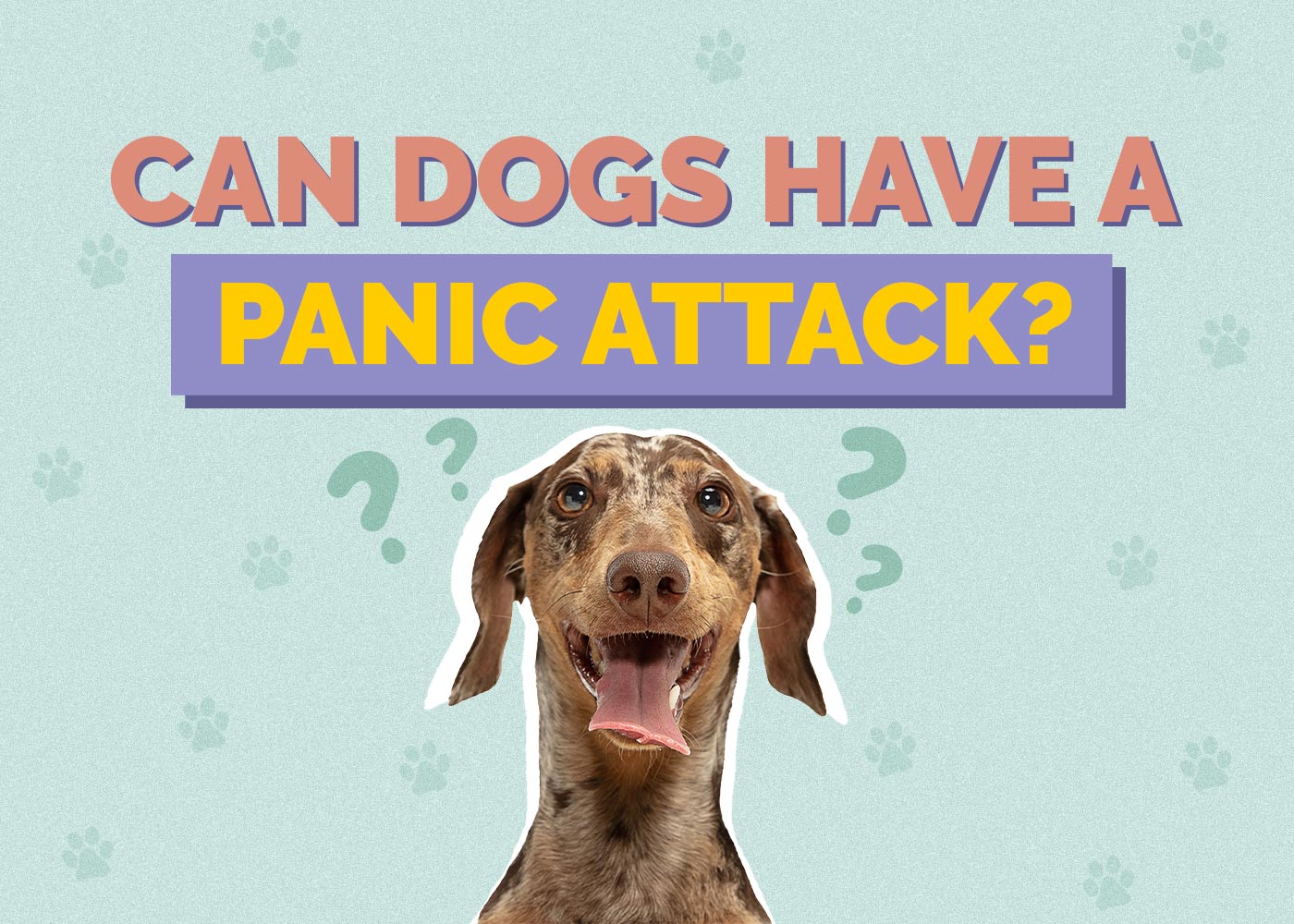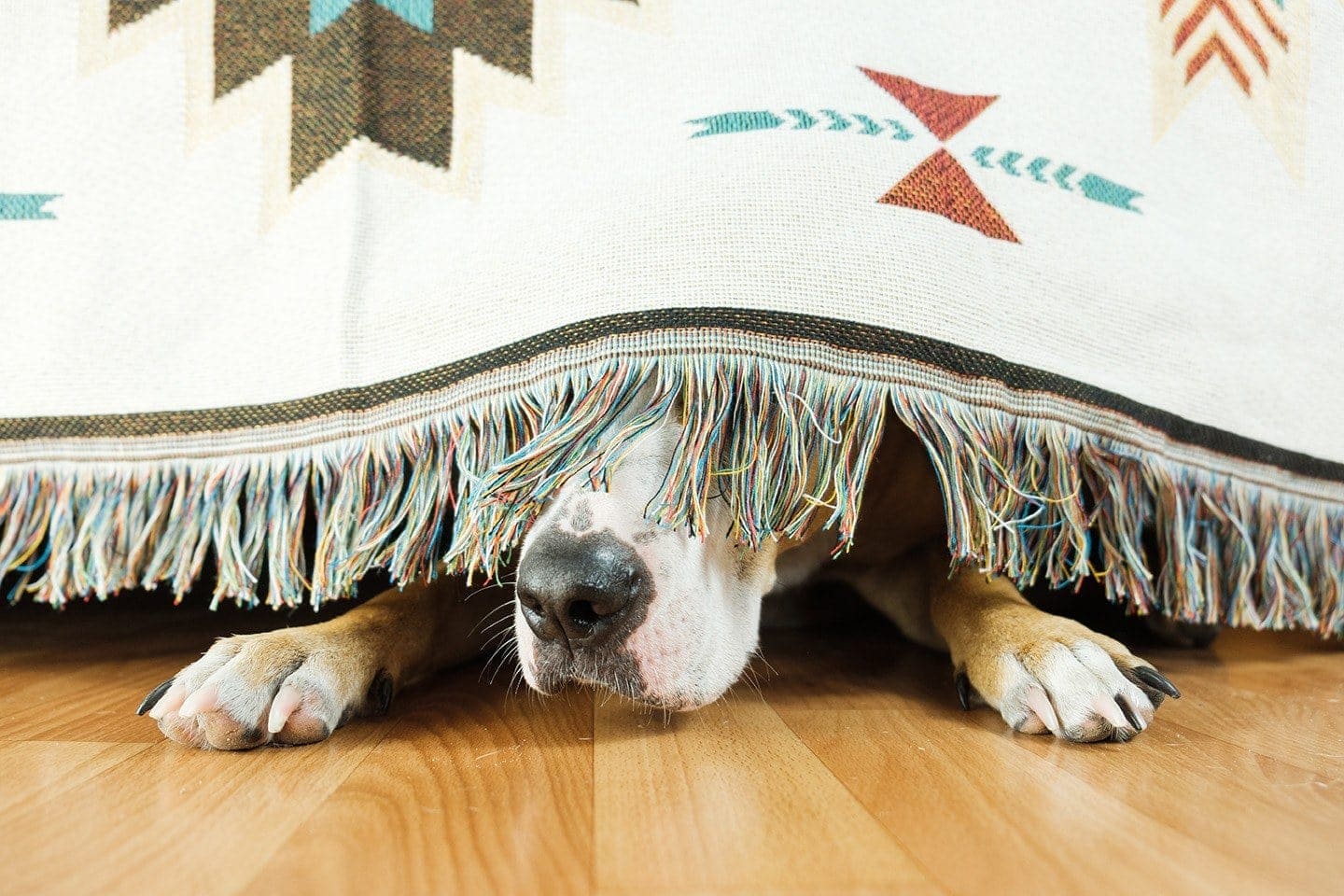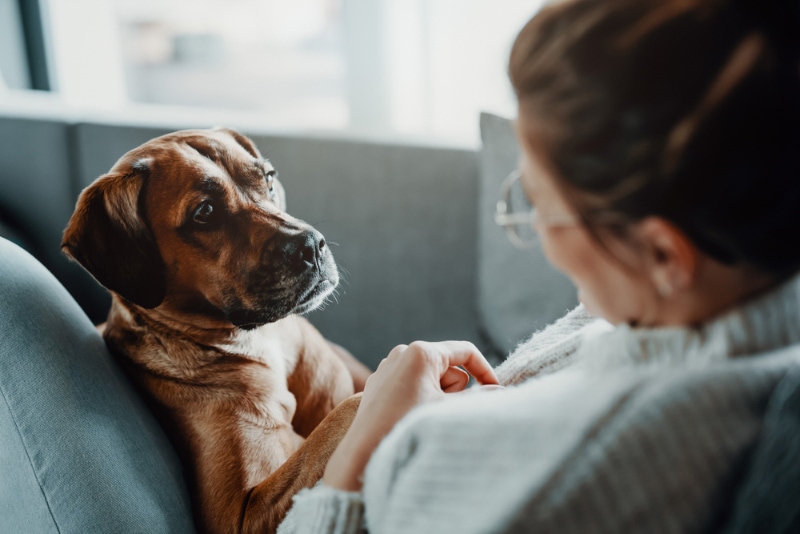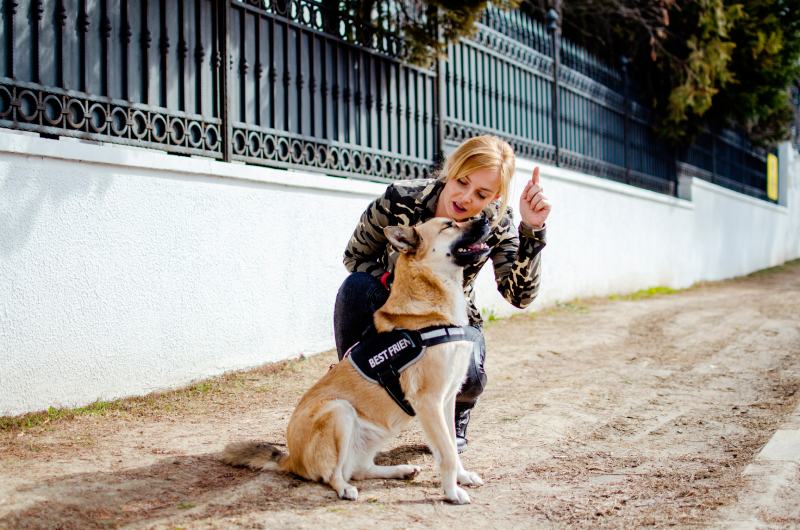Can Dogs Have a Panic Attack? Vet Approved Signs & How to Help
Updated on

Click to Skip Ahead
Panic attacks can be an extremely frightening experience for the people who experience them, with the signs often leading people to believe that they’re experiencing a heart attack or that they can’t breathe. Can our dogs experience panic attacks? Believe it or not, dogs can experience panic attacks, but they are a little bit different from those experienced by humans, although there are some similarities. Here’s everything you need to know!
Why Do Dogs Have Panic Attacks?
While panic attacks can occur either at random or because of triggers in humans, dog panic attacks typically are caused by an identifiable trigger. Situations that create overwhelming emotions, like traumatic situations, exposure to fears, or being left alone, can cause a dog to begin to experience a panic attack.
Situations that the dog can’t escape from are far more likely to cause the dog’s panicky behavior to escalate. Loud noises (like fireworks), separation anxiety, learned fear, and pain are all situations that may cause a dog to begin to panic. A panic attack causes a sudden feeling of intense fear or anxiety, and can lead to a range of physical responses.

Signs of Panic Attacks in Dogs
- Heavy panting
- Panting unrelated to exercise or heat
- Lip licking
- Yawning
- Trembling
- Abnormal aggression
- Drooling and excessive salivation
- Frantic attention seeking behavior
- Digging and scratching
- Vomiting
- Diarrhea
- Rapid heart rate
- Trying to escape
- Bolting
How Long Do Panic Attacks Last?
Although the extreme signs of a panic attack don’t usually last for very long, the general signs of fear and panic can last much longer. Dogs with a fear of the vet’s office or car rides may seem panicky until they’re back at home in their own bed. Dogs with a fear of fireworks may experience panic throughout the fireworks and continue to experience signs of panic for hours afterward. In extremely stressful situations, it may take a few days for the neurotransmitters in your dog’s nervous system to return to normal.
The more your dog is exposed to their fear, the faster they will begin to panic. Some dogs may continue to be anxious or fearful after the situation has ended if it’s something they’ve experienced before because they may fear the situation reoccurring.
How You Can Help
1. Stay Calm
Dogs are very in tune with the emotions of humans. If you’re fearful or stressed in a situation, then your dog is likely to mirror your negative feelings. In a situation that causes stress or panic for your dog, they need you to stay calm. Speak quietly and avoid sudden movements or noises.

2. Be Supportive and Affectionate
Even if you’re feeling calm, your dog may need extra reassurance that they’re going to be okay. Petting, quietly talking, and even singing to your dog may help soothe and calm them in a scary situation. Some dogs may also respond to high-value rewards in these situations.
3. Distract Them
Distracting your dog with treats, toys, or anything else they like may help to re-center them and help them feel safe and calm. In frightening situations, some dogs will not be responsive at all to distractions, but some dogs are receptive to the positive feelings that come with distractions, like happiness from receiving a favorite toy or seeing you pull out their leash for a walk.

4. Give Calming Supplements
There are tons of over-the-counter calming supplements for dogs that can help in stressful situations. Calming chews may not be suitable for sudden experiences, but they’re a great option for dealing with things like fireworks on a holiday or to help calm your dog for a vet visit.
5. Play Music
Music has been shown to have positive benefits for humans and dogs alike. Your dog may have a notable preference for a certain type of music, in which case you should stick to what you know they like. While classical music is the obvious first choice, some studies have indicated that dogs also enjoy listening to soft rock and reggae.

6. Talk to Your Vet
In some cases, you’ll need more tools to help your dog than you’ll be able to come up with on your own. Consulting with your vet is always important to rule out pain and underlying health conditions that might be causing panic. Some dogs may need prescription medications to help them stay calm in scary situations. It’s also not uncommon for fearful and panicky dogs to need the assistance of an experienced behaviorist who is familiar with helping dogs with these issues.
In Conclusion
Dogs can experience panic attacks. These are extreme exaggerated fear responses, out of proportion to the danger they are in. Common triggers include loud noises, separation anxiety and a visit to somewhere your dog finds scary. In situations that are scary for your dog, it’s your job to do everything you can to help them feel safe. The top priority should always be keeping them safe, though. For example, if your dog is afraid of fireworks, then prepare a safe, comfortable, quiet place for your dog ahead of time and plan to be home with them. Seek advice from your vet or qualified behaviorist to help you get to the bottom of the issue and help your dog.
Featured Image Credit: Paul’s Lady, Shutterstock











